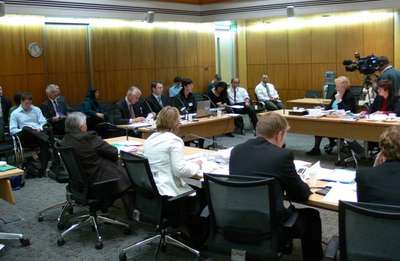Overwhelming Opposition Confirmed On Assisted Suicide Bill
 There is overwhelming opposition to David Seymour’s assisted suicide bill by submitters to the Select Committee is no surprise and was already indicated during the earlier Inquiry by the Health Select Committee.
There is overwhelming opposition to David Seymour’s assisted suicide bill by submitters to the Select Committee is no surprise and was already indicated during the earlier Inquiry by the Health Select Committee.
According to an analysis of a substantial number of the submissions by the Care Alliance, a whopping 92% of submissions are against David Seymour’s bill, and is significantly higher than the already-high 77% opposition during the Health Select Committee’s earlier investigation.
This is opposition from all walks of life and professional groups across the spectrum. Supporters of assisted suicide have tried to argue that the only opposition comes from ‘religious’ people, but in the recent Inquiry, 82% of submissions opposed to euthanasia contained no reference to religious arguments. Ironically, 208 submissions referred to religious reasoning in supporting euthanasia.
Supporters of Seymour’s bill had their chance to campaign and get people to submit in support of the law change. The fact of the matter is that the support has been found wanting.
It is also ironic that ex-MP Maryan Street implied that a record 22,000 responses to her earlier petition meant that it is time to legalise euthanasia. In fact, the message is clearly the exact opposite. New Zealanders want a conversation – but they are opposed to assisted suicide as the solution.
The promotion of assisted suicide is a message that will be heard not just by those with a terminal illness but also by anyone tempted to think he or she can no longer cope with their suffering – whatever the nature of that suffering. This is the real risk to young and to vulnerable people, the disabled and elderly people if NZ follows the path of promoting – and allowing – assisted suicide.
The politicians should give New Zealanders a real Christmas present and move on from the current political push for assisted suicide, and focus on what New Zealanders really need and want – a focus on providing the very best palliative care and support for vulnerable people, whether they are at the end of their life, or momentarily wishing they were at the end of their life.






